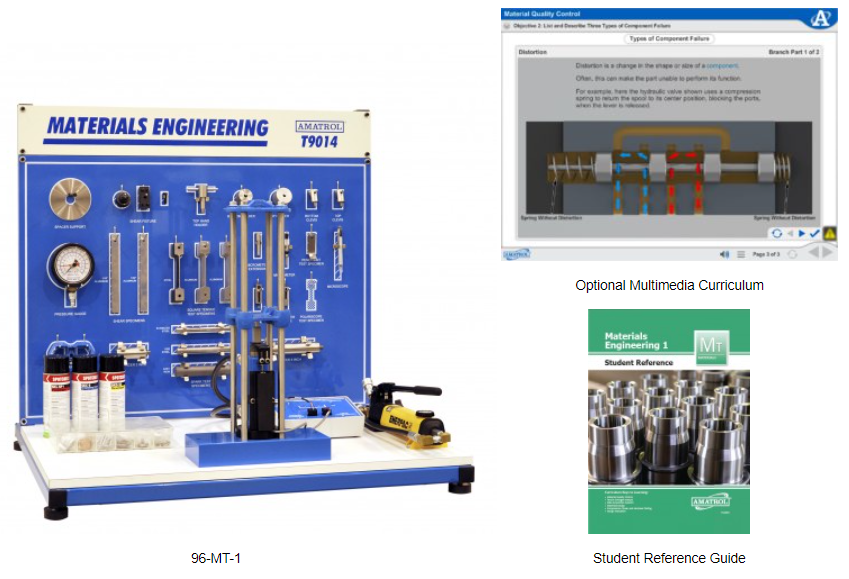
Material strength properties affect the performance and safety of almost every product made. As technology has advanced, material choices have broadened and become more complex. Engineers and technicians alike must be able to select the proper material for an application and analyze material properties when a product fails. That’s where Materials Engineering comes into play.
Amatrol’s Materials Engineering training system (96-MT1) uses industrial quality components to teach students how to evaluate and use different industry grade materials. The 96-MT1 allows students to conduct a wide array of tests including tensile testing on steel alloys. Students learn industry-relevant skills in materials testing (tensile, compression, hardness, and shear), computerized data acquisition, chemistry of metals, interpretation of industry-standard numeric identification systems of various types of metals (steel, aluminum, brass, and copper), material strength analysis, and product design.
Learning Topics
- Material Quality Controlli>
- Non-Destructive Testing
- Tensile Strength Analysis
- Tensile Testing
- Data Acquisition Systems
- Transducers
- Material Science Concepts
- Alloy Design
- Compression Testing and Analysis
- Shear and Hardness Testing and Analysis
- Design Evaluation
Key Features
- Understanding of realistic array of industrial materials such as steel, copper, aluminum, and brass
- Visualization of material stress
- Excellent preparation for study of engineering, manufacturing, industrial maintenance
- Data analysis and problem solving
- Industrial quality components and relevant skills
Product Options
Additional Requirements
- Computer: See requirements
For more inquiries, please feel free to contact me.

